Calculate the amount of heat liberated when 1.26×104 g of ammonia is produced according to the equation.
N2(g)+3H2(g)→2ZnO(s)+2NH3(g)ΔH=−92.6kJ.
Heat liberated for 1.26×104 g of ammonia =3.43×104kJ
Topper's Solved these Questions
- THERMODYNAMICS AND THERMOCHEMISTRYBOOK - CENGAGE CHEMISTRYCHAPTER - THERMODYNAMICS AND THERMOCHEMISTRYEXERCISE - CONSOLIDATED EXERCISE
7 Videos
- THERMODYNAMICS AND THERMOCHEMISTRYBOOK - CENGAGE CHEMISTRYCHAPTER - THERMODYNAMICS AND THERMOCHEMISTRYEXERCISE - CHALLENGING EXERCISE
7 Videos
- THERMODYNAMICS AND THERMOCHEMISTRYBOOK - CENGAGE CHEMISTRYCHAPTER - THERMODYNAMICS AND THERMOCHEMISTRYEXERCISE - MANDATORY EXERCISE ( EXERCISE SET - I)
27 Videos
- REACTION KINETICS AND CHEMICAL EQUILIBRIUMBOOK - CENGAGE CHEMISTRYCHAPTER - REACTION KINETICS AND CHEMICAL EQUILIBRIUMEXERCISE - OLYMPIAD AND NTSE LEVEL EXERCISES
10 Videos
Similar Questions
For the reaction
N2(g)+3H2(g)⇔2NH3(g),ΔH=?
View SolutionHow much heat is released when 850kg of ammonia is produced according to the following thermochemical equation?
N2(g)+3H2(g)→2NH3(g), Δ1H∘=−91.8kJ
Strategy : To do the calculation, we must convert grams of NH3 to moles of NH3, and then to kilojoules of heat.
Grams of NH3→ Moles of NH3→ Kilojoules of heat
View Solution
Knowledge Check
For the reaction
N2(g)+3H2(g)⇔2NH3(g),ΔH=?AΔE+2RTBΔE−2RTCΔE+RTDΔE−RTThe % yield of ammonia as a function of time in the reaction N2(g)+3H2(g)⇔2NH3(g),(g)ΔH<0 at (P,T1) is given below
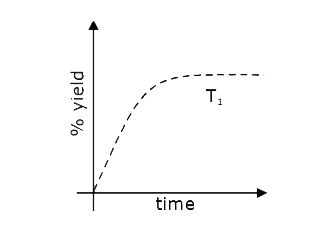 A
A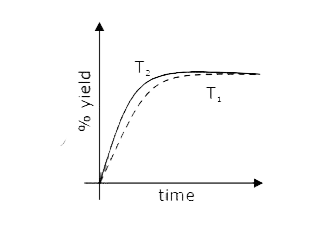 B
B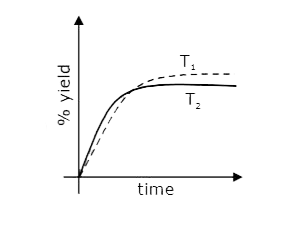 C
C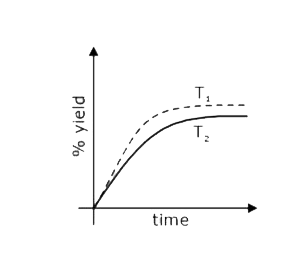 D
D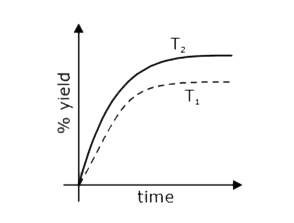
Which of the following will not change the concentration of ammonia in the equilibrium
N2(g)+3H2(g)⇔2NH3(g),ΔH=−xkJAincrease of temperatureBincrease of volumeCdecrease of volumeDaddition of catalyst
The enthalpy change (ΔH) for the reaction
N2(g)+3H2(g)→2NH3(g)
is −92.38kJ at 298K. What is ΔU at 298K?
View SolutionWhich of the following will not change the concentration of ammonia in the equilibrium
N2(g)+3H2(g)⇔2NH3(g),ΔH=−xkJ
View SolutionWhich of the following will not change the concentration of ammonia in the equilibrium
N2(g)+3H2(g)⇔2NH3(g),ΔH=−xkJ
View SolutionN2(g)+3H2(g)→2NH3(g),ΔH=−92.3kJ
2NH3(g)→N2(g)+3H2(g),ΔH=…….kJ
View SolutionIf ΔfG∘ for NH3(g) is −16.4kJmol−1, thenΔG∘ for the reaction: N2(g)+3H2(g)→2NH3(g) is
View Solution
